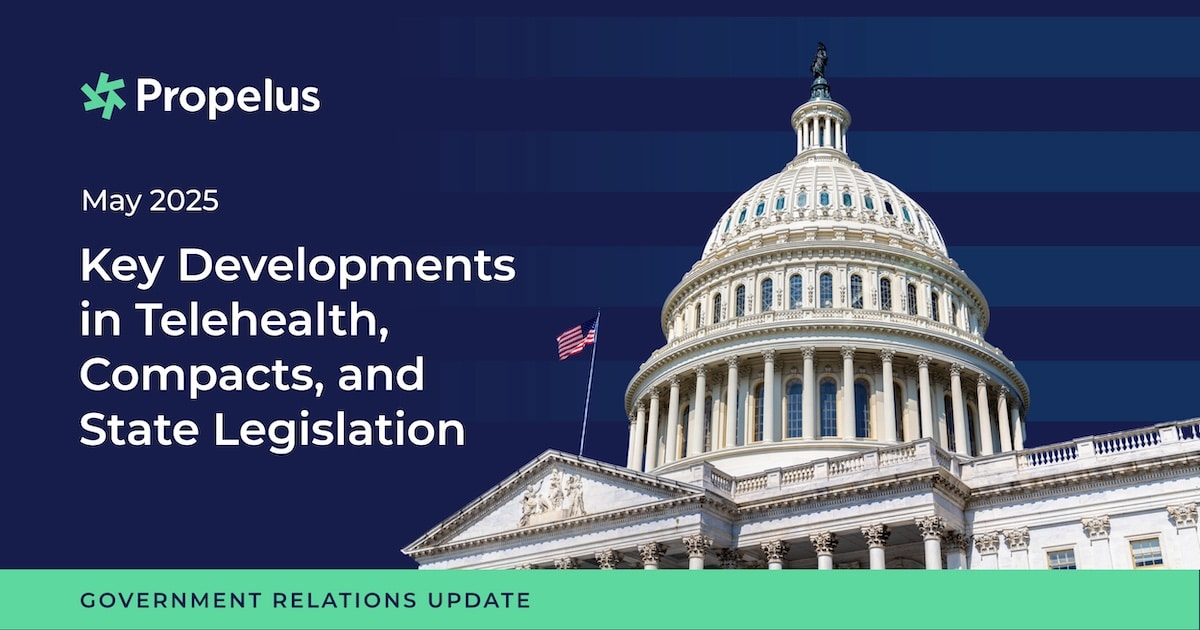By Kelly Parker, Vice President of External Affairs and Government Relations, Propelus
Welcome to the inaugural edition of our monthly Government Relations Update, your go-to source for navigating the evolving landscape of nationwide legislative and policy initiatives. Each month, we’ll delve into key policy shifts and regulatory changes impacting the healthcare sector. In May, we focused on significant developments in telehealth, the expanding reach of professional licensing compacts, and noteworthy state legislation. Let’s dive in.
Telehealth Advocacy Advances
The American Telemedicine Association (ATA) continues to strengthen its advocacy reach. ATA Action, their advocacy arm, has acquired the Digital Therapeutics Alliance (DTA). This strategic move unites two major forces in digital health policy, creating a powerful platform for advocating telehealth and digital therapeutics within the U.S. healthcare system. This acquisition signals a growing trend toward the integration and adoption of digital health solutions.
Licensing Compact Expand
The expansion of interstate licensing compacts is progressing. New Jersey recently became the 28th state to join the Social Work Licensure Compact in May 2025. Additionally, the Interstate Medical Licensure Compact Commission (IMLCC) recently called for stakeholder advocacy and support in New Mexico. There is a potential opportunity for New Mexico’s Governor to call a special session and include the IMLC legislation. During the regular 2025 New Mexico session, the bill failed to pass.
State Legislation Highlights
Georgia has made strides in professional licensing. Governor Brian Kemp signed SB 125 into law on May 9, 2025. This law introduces reforms for licensed professionals regulated by the Secretary of State, including a modernized system to track continuing education. Moving forward, continuing education compliance will be verified before license renewals, aiming to increase government efficiency and enhance public protection.
Legal Landscape of Telehealth
In a legal update, a federal judge in New Jersey dismissed a challenge to the state’s in-state licensure requirement for telehealth services. The case, MacDonald v. Sabando, involved out-of-state doctors who wished to continue providing virtual care to New Jersey patients. The court upheld the state’s right to require in-state licensure for telehealth providers. This decision reinforces the importance of understanding state-specific regulations for telehealth practice.
Stay tuned for more updates as these policy changes develop and impact healthcare delivery.

